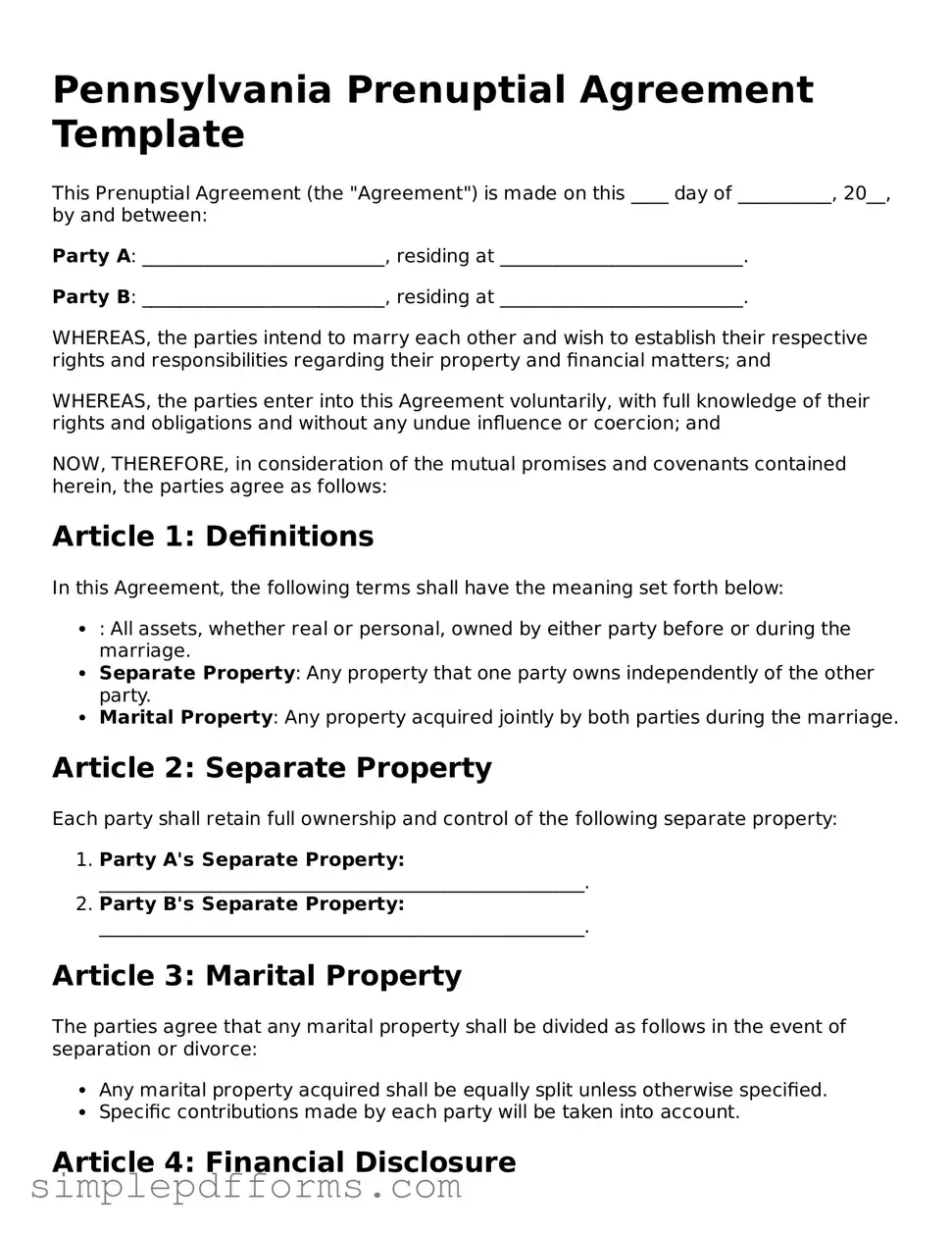Pennsylvania Prenuptial Agreement Template
This Prenuptial Agreement (the "Agreement") is made on this ____ day of __________, 20__, by and between:
Party A: __________________________, residing at __________________________.
Party B: __________________________, residing at __________________________.
WHEREAS, the parties intend to marry each other and wish to establish their respective rights and responsibilities regarding their property and financial matters; and
WHEREAS, the parties enter into this Agreement voluntarily, with full knowledge of their rights and obligations and without any undue influence or coercion; and
NOW, THEREFORE, in consideration of the mutual promises and covenants contained herein, the parties agree as follows:
Article 1: Definitions
In this Agreement, the following terms shall have the meaning set forth below:
- : All assets, whether real or personal, owned by either party before or during the marriage.
- Separate Property: Any property that one party owns independently of the other party.
- Marital Property: Any property acquired jointly by both parties during the marriage.
Article 2: Separate Property
Each party shall retain full ownership and control of the following separate property:
- Party A's Separate Property: ____________________________________________________.
- Party B's Separate Property: ____________________________________________________.
Article 3: Marital Property
The parties agree that any marital property shall be divided as follows in the event of separation or divorce:
- Any marital property acquired shall be equally split unless otherwise specified.
- Specific contributions made by each party will be taken into account.
Article 4: Financial Disclosure
Each party agrees to provide a full and accurate disclosure of their financial status, including assets, liabilities, and income, prior to signing this Agreement. The parties acknowledge that such disclosure is essential to their understanding of this Agreement.
Article 5: Amendment and Revocation
This Agreement may be amended or revoked at any time by mutual consent of both parties. Any amendments must be in writing and signed by both parties.
Article 6: Governing Law
This Agreement shall be governed by and construed in accordance with the laws of the Commonwealth of Pennsylvania.
Article 7: Mutual Representations
Each party represents and warrants that they have had the opportunity to consult with independent legal counsel prior to entering into this Agreement.
Signatures
IN WITNESS WHEREOF, the parties have executed this Agreement as of the date first written above.
_______________________________
Party A
_______________________________
Party B
_______________________________
Date

